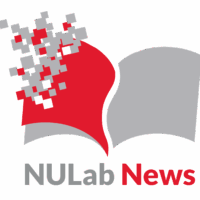From News@Northeastern
By Peter Ramjug
It’s no secret that social media is a breeding ground for COVID-19 vaccine misinformation. Just recently, a group of healthcare professionals called on Spotify to adopt a misinformation policy after allowing Joe Rogan to spread what they said were misleading and false claims on his podcast.
But just how much does misinformation actually factor into a person’s decision to not get vaccinated? And how urgent a problem is fake vaccine news?
For the first time, researchers at the Covid States Project—a collaborative effort by Northeastern, Harvard, Northwestern, and Rutgers—sought to quantify the impact of misinformation by hearing directly from frontline health care workers who tend to the unvaccinated that come down with COVID-19.

Doctors, nurses, and others in the health care field are ‘eyewitnesses to life and death health decisions in a way that most people are not,’ says David Lazer, distinguished professor of political science and computer and information science. Photo by Adam Glanzman/Northeastern University.
Doctors and nurses—and anyone else in scrubs—offer a unique insight into the pandemic, and they’re talking to sick people about their decision not to get inoculated, making them a valuable resource, explains one of the authors of a study, Northeastern’s David Lazer, university distinguished professor of political science and computer science.
“They’re eyewitnesses to life and death health decisions in a way that most people are not, so we thought we would ask them what they’ve seen,” he says.
After interviewing more than 500 people who work in a variety of health care settings, the researchers found that more than 70% of them viewed misinformation as an “urgent” problem, playing an outsized role in patients’ decisions to not get vaccinated.
Workers were also asked which channels people were getting the bulk of the bad information from. Social media in general—Facebook in particular—was far and away the top source, according to the study. Other misinformation sources included friends and family members, celebrities, and TV news.
“Facebook makes it so much easier to get bad information from friends and family,” says Lazer.
Misleading vaccine claims on social media are nothing new. Lazer and other Northeastern researchers have been studying the digital public square as a conduit for misinformation since the fall of 2020 with a report on Twitter. The current survey takes it one level deeper by specifically looking at the magnitude of the problem through the eyes of healthcare employees.
“It really sticks out that so many of them agreed that ‘it’s the most important issue’ or ‘it’s a really urgent problem that we need to fix,’” says Krissy Lunz Trujillo, a postdoctoral researcher in Northeastern’s Network Science Institute.
That’s not to suggest that what the unvaccinated read on social media is the sole factor in their decision-making, the researchers stress. They were quick to note in the study that their findings cannot provide insight into whether online channels are actually causing people to stiff-arm inoculations.
One reason they cite is that health care workers themselves will likely be influenced by their own sources of vaccine information.
“Health care workers are an incredibly heterogeneous category,” explains Lazer. “They have about the same level of vaccine hesitancy and resistance as the rest of the population, as our previous studies have shown. They look like the country as a whole.”



